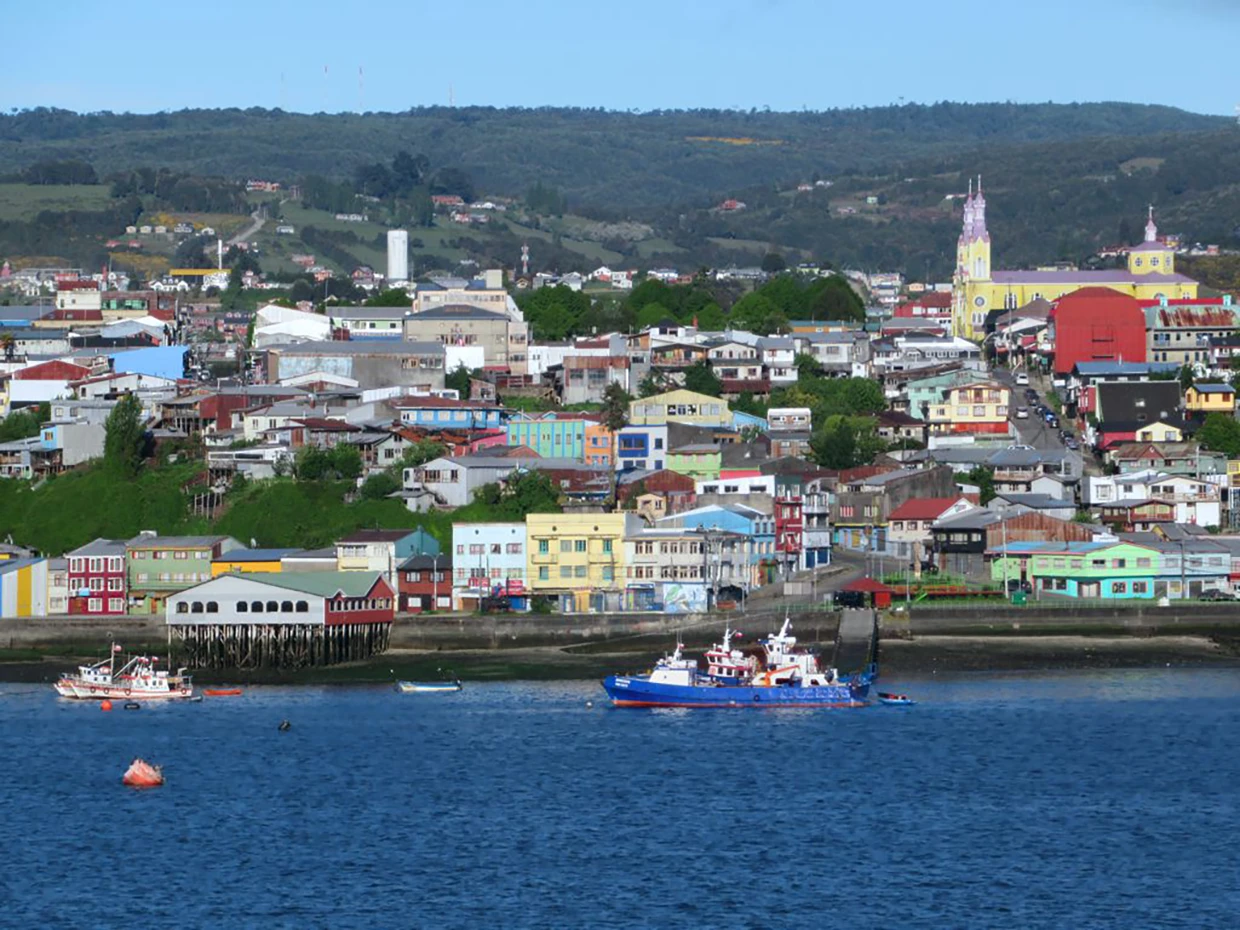Just like the stilt houses in the coastal areas of Castro, the churches of Chiloé are a recognized heritage. Local carpenters have built temples designed by the Jesuit priests who arrived to the archipelago in the 17th century, giving rise to unique creations.
Many of the churches spread throughout the archipelago, sixteen were declared World Heritage Site by UNESCO and are national monuments. In this article we will visit some of them, based in the city of Castro.
The city of Castro
Castro is the capital city and is characterized by its stilt houses, -houses built on wooden stilts on the shore, overlooking the sea. Those that are still standing are currently in the Pedro Montt and Gamboa sectors.
San Francisco de Castro Church
It is the largest of the 16, it is located in front of the main square of Castro and stands out for its yellow and purple colors. Its interior is admirable and its construction was completed in 1912.
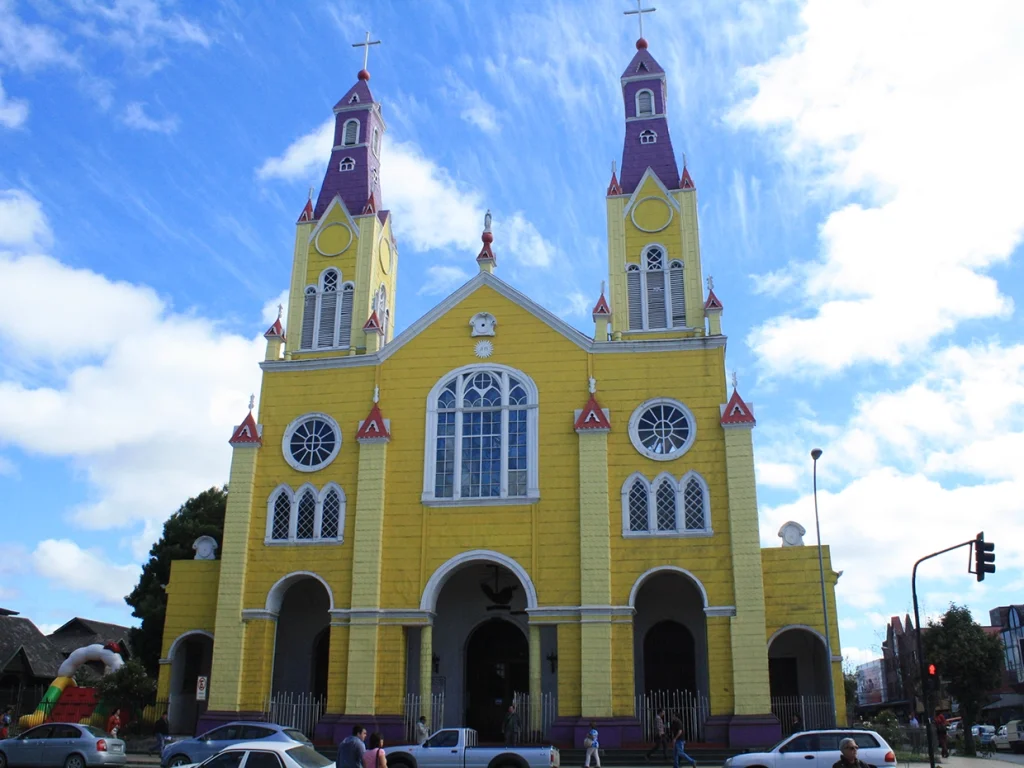
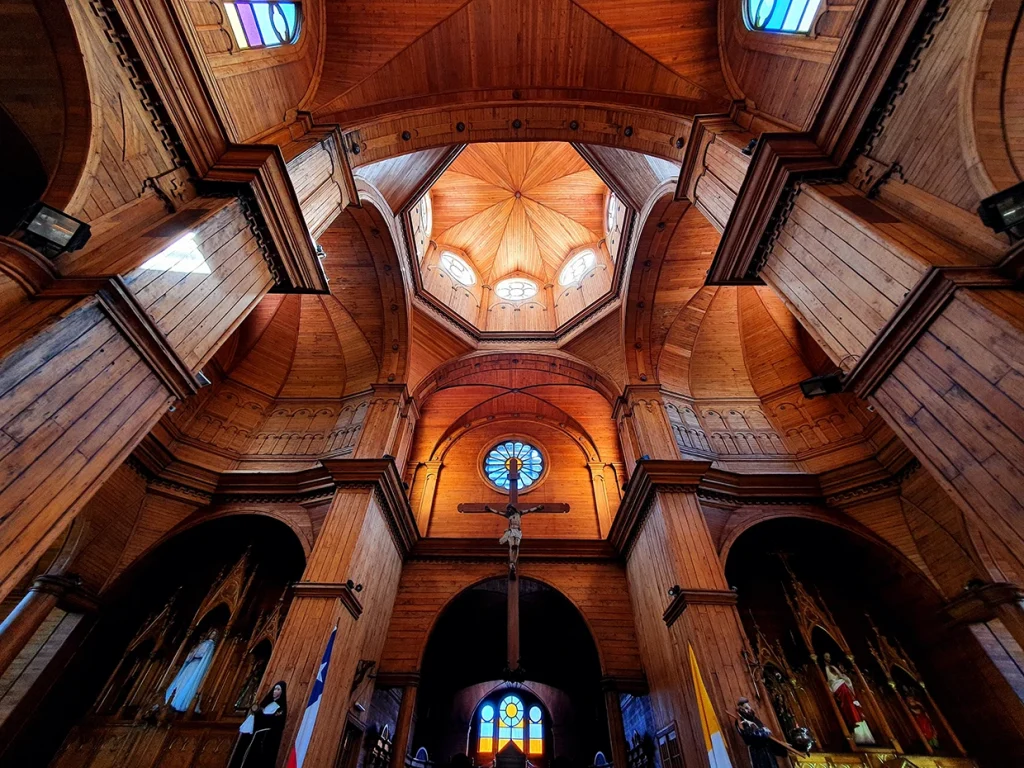
Nercon Church
Built predominantly with larch and cypress wood, it has considerable dimensions: 40 meters long by 15 meters wide, with a 25-meter tower that is visible from a great distance. It is located 4 km south of Castro and next to it it has a cemetery *on the left in the photo) that is distinguished by its color. It was built between 1879 and 1888.
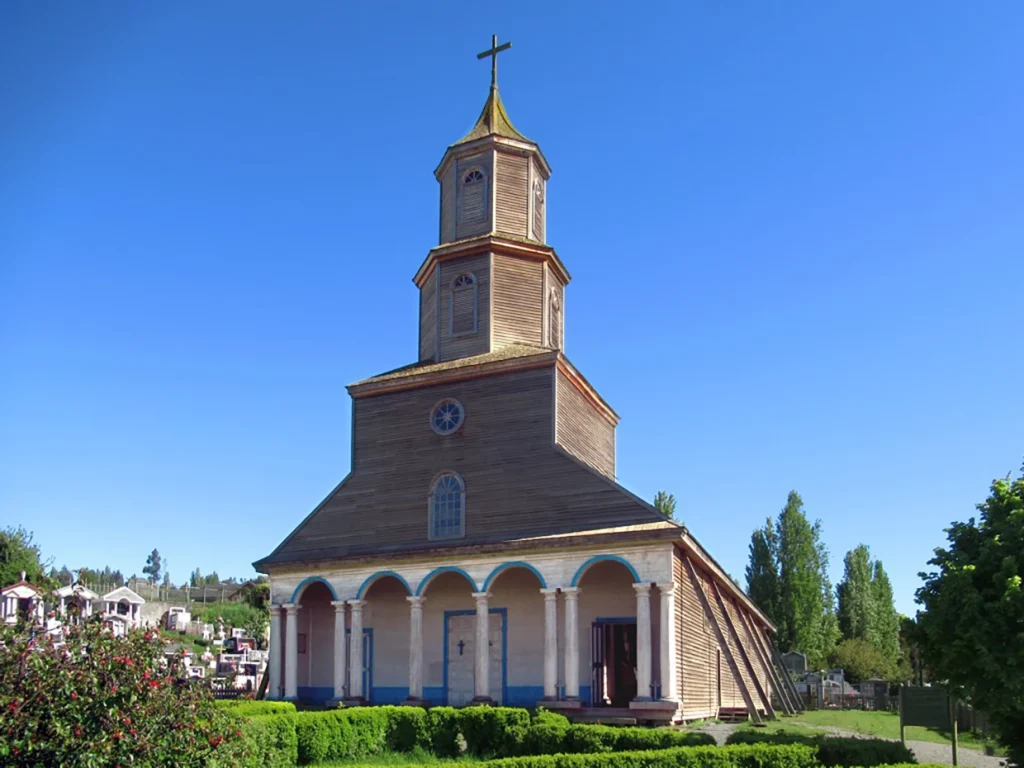
More than 16 km south of Castro, lies a charming coastal destination called Vilupulli.
Church of San Antonio de Vilupulli
This church is distinguished by its narrow and stylized tower. It is not clear the date of its construction, which may have been in the 19th century. If you plan a trip, keep in mind that every June 13 the festival is celebrated in honor of its patron saint, San Antonio
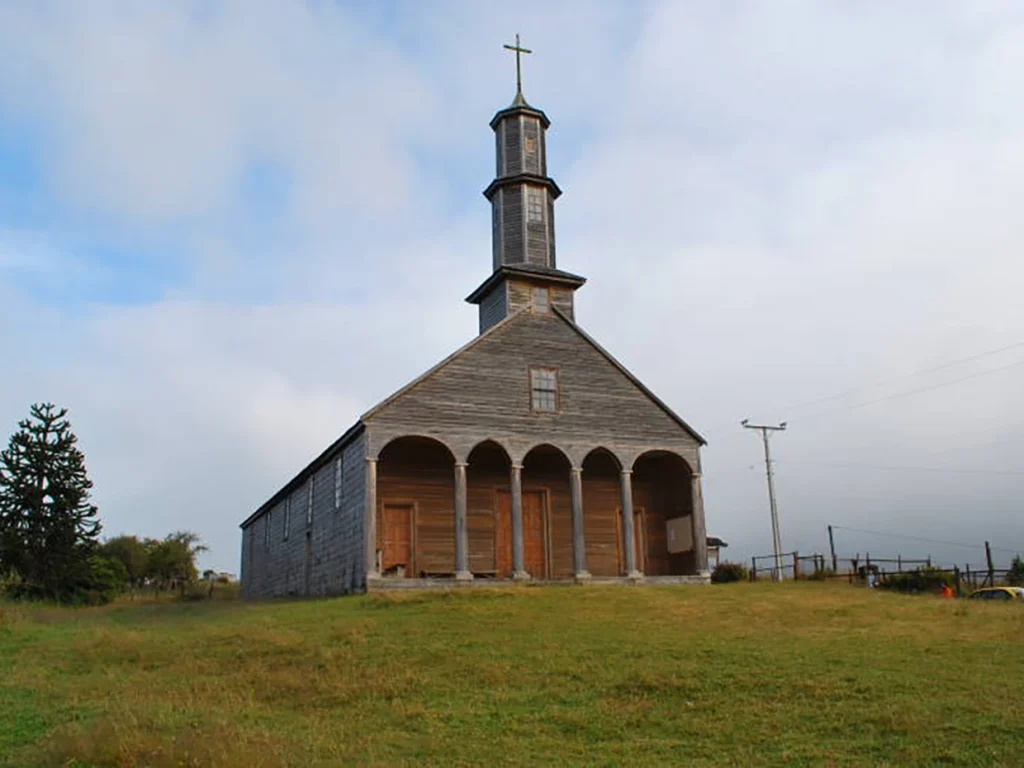
Continuing further south (22 m south of Castro) is Chonchi where you can reach by bus or car.
Chonchi Church
The church is located on one side of the plaza in the city of Chonchi. The “San Carlos de Chonchi” mission was created by Jesuit missionaries in 1764 to evangelize the indigenous Payos who inhabited the area. By 1767 there are records of a church on the site. However, other data suggest that the original 18th century church would have collapsed and that the current one would date from 1859 or the end of the 19th century. XIX. It is characterized by its yellow and light blue colors.
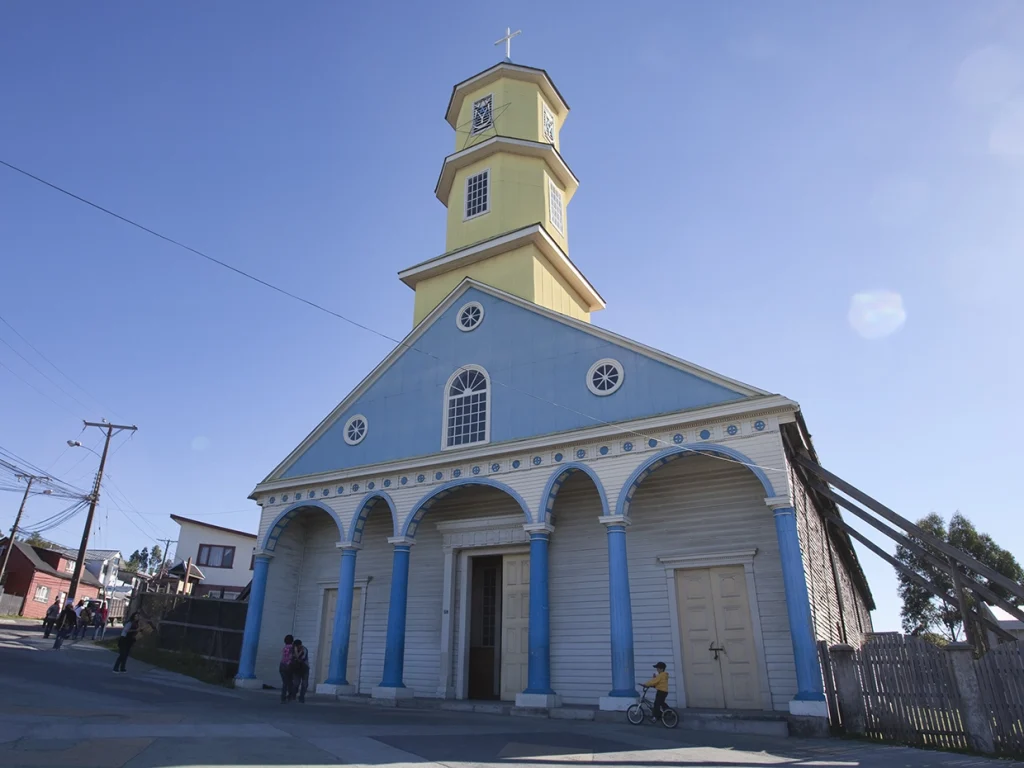
Continuing south we arrive at Huicha from where the ferry leaves to reach Lemuy Island.
Ichuac church, Puqueldón
This church has the particularity of having a small clock in its porch. The porch has 5 arches: 2 semicircular, 2 pointed and a lowered central one
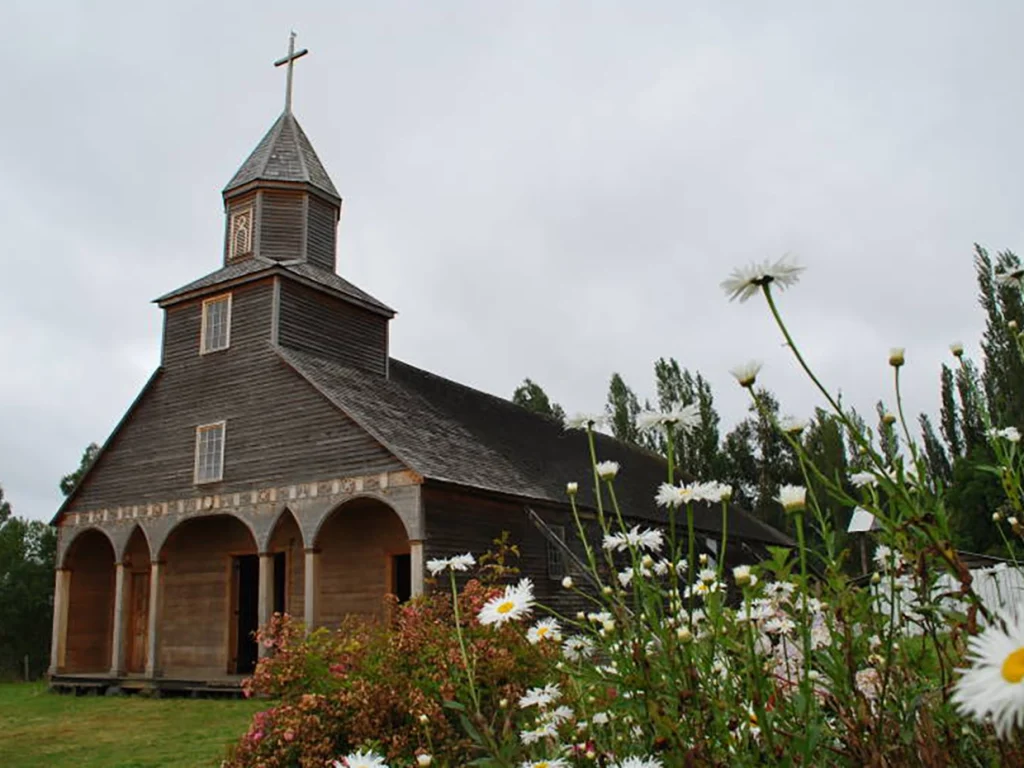
Jesus Nazarene Church of Aldachildo
It is also known simply as Aldachildo Church and is notable for its architecture and decorative elements. Inside, you can see a dome painted blue with small yellow stars. This church was completed in 1910 and did not undergo many modifications. Its tower is quite stylized and the porch has 7 arches.
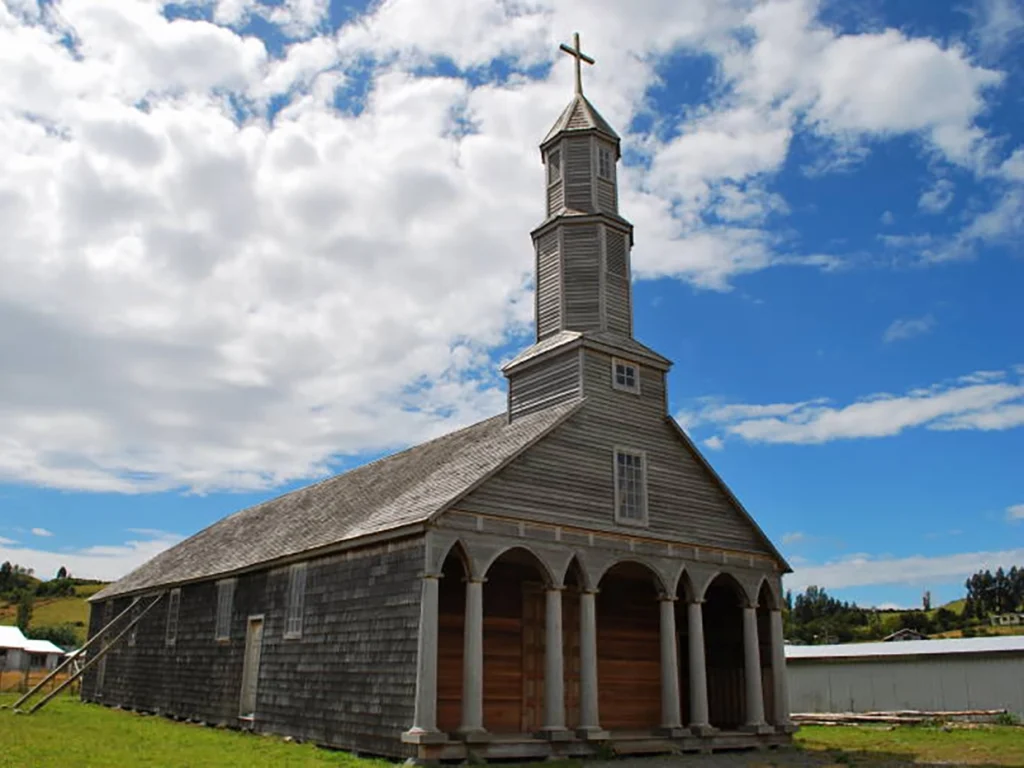
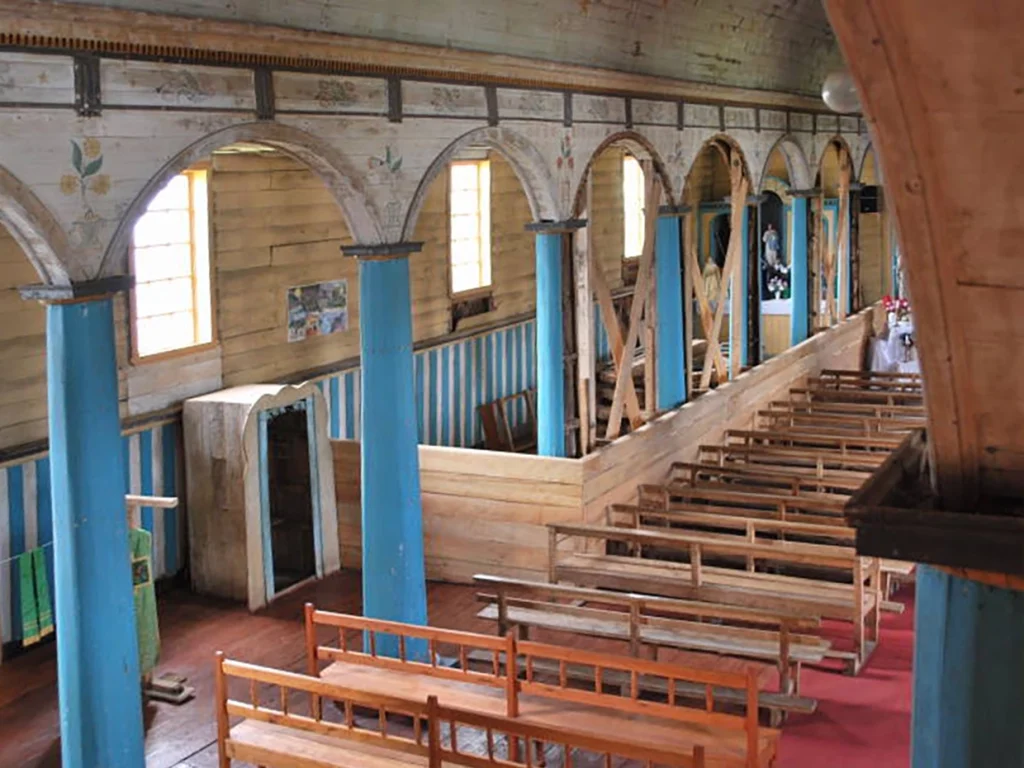
Our Lady of Lourdes Church of Detif
The third of the churches to see on the island of Lemuy is that of Detif. The first chapel in Detif was built in 1734. The current one is located in the center of the town, near the beach, and was built at the beginning of the 19th century. Coigüe and larch wood were used for its construction. The church was built on stone bases, and covered with larch shingles. Due to the shortage of metals on the Lemuy and Chiloé islands, iron nails were not used in the rough work but wooden dowels. Inside there are a large number of wooden boats hanging from the sky. These are offerings from the sailors who returned alive.
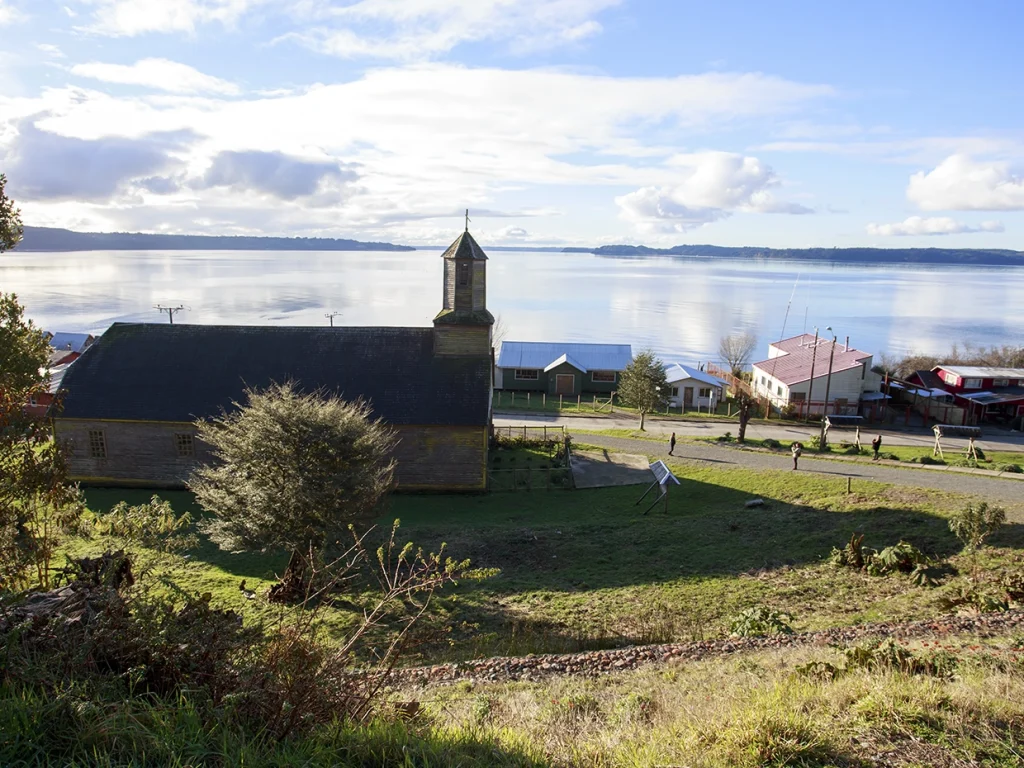
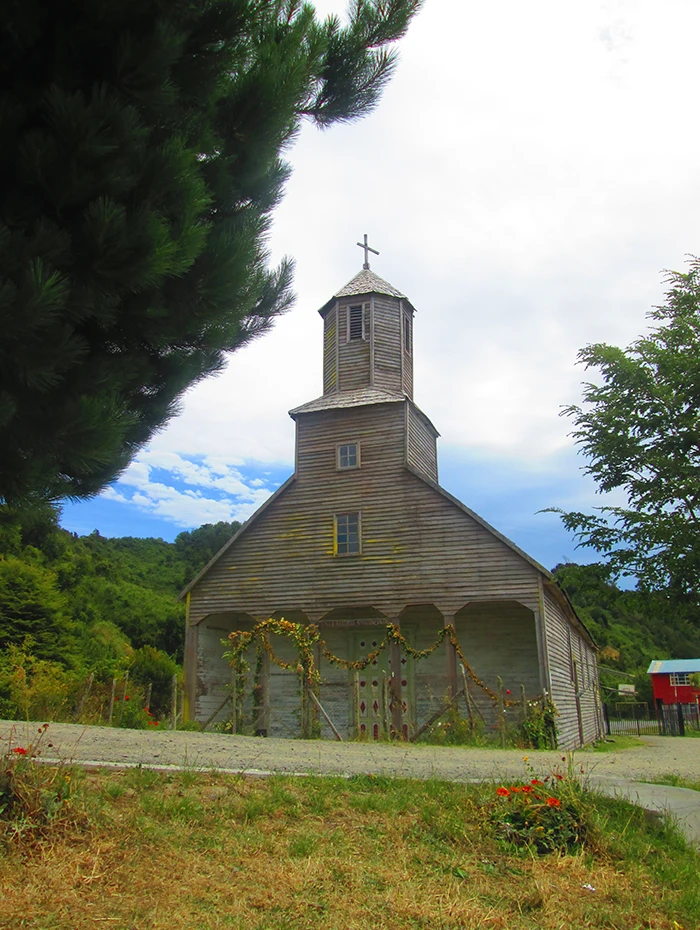
From Castro there are ferries that cross to Chelin Island
Our Lady of the Rosary Church of Chelin
It was completed in approximately 1888 and restored in 1990. As you can see, its façade is highly decorated and inside, the columns painted with lines that imitate marble stand out, as well as a roof covered with tiles.
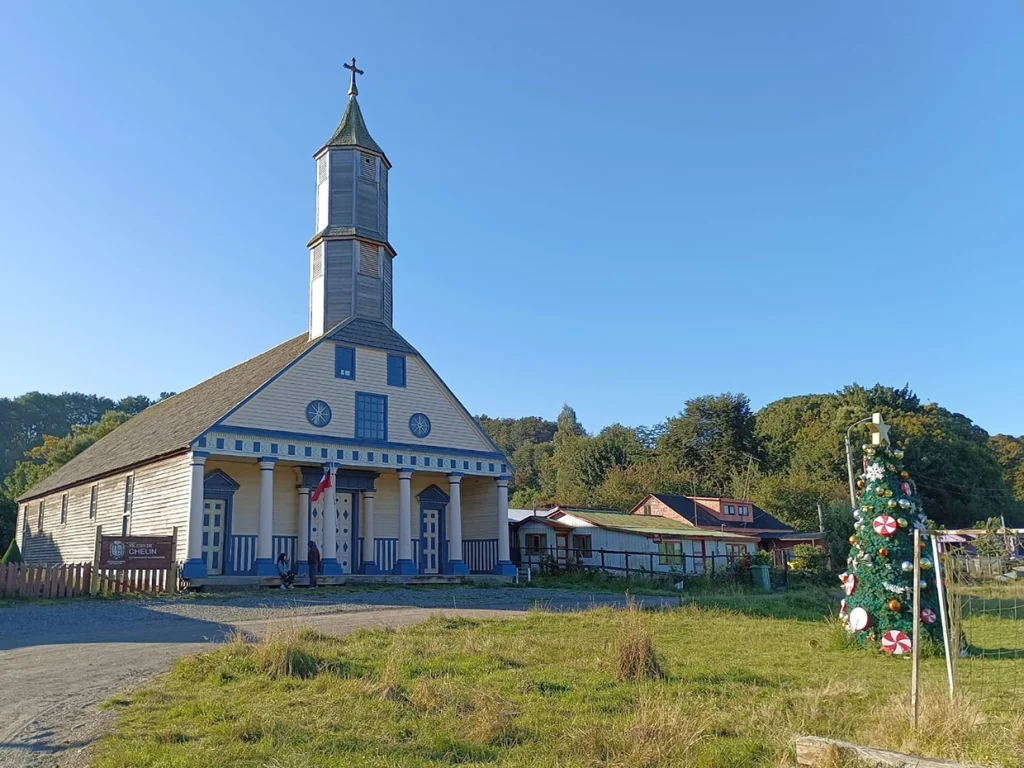
You also can visit…

The churches of Chiloé are unique not only because they were built entirely of wood but also because of their relationship with the coast and the landscape.


